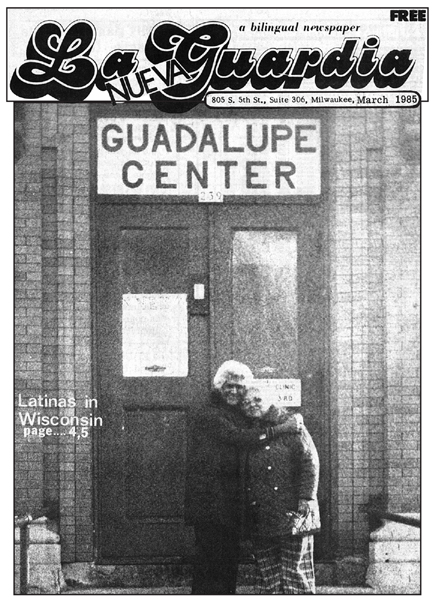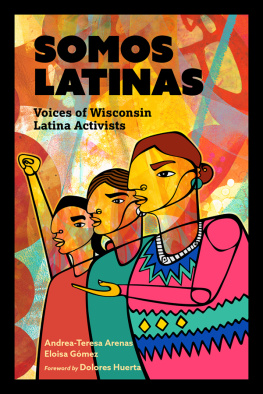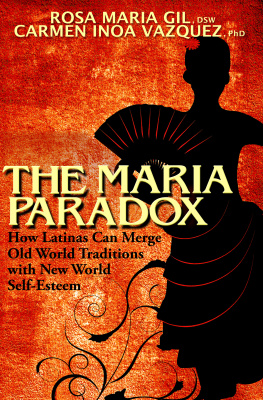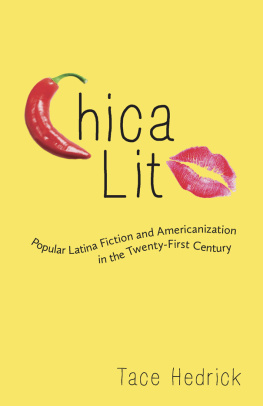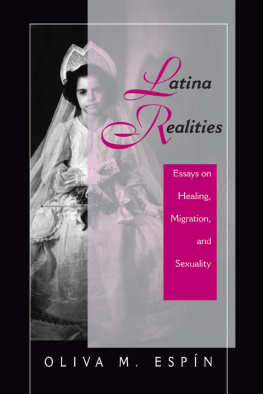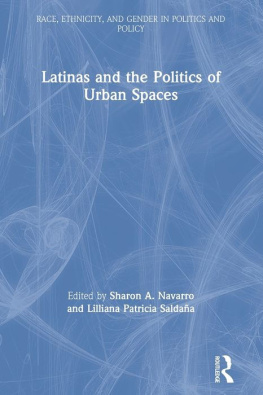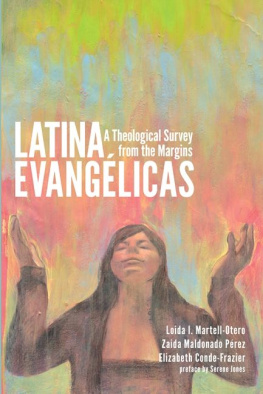Somos Latinas

Published by the Wisconsin Historical Society Press
Publishers since 1855
The Wisconsin Historical Society helps people connect to the past by collecting, preserving, and sharing stories. Founded in 1846, the Society is one of the nations finest historical institutions.
Join the Wisconsin Historical Society: wisconsinhistory.org/membership
2018 by the State Historical Society of Wisconsin
E-book edition 2018
Publication of this book was made possible in part by a gift from the D. C. Everest fellowship fund.
For permission to reuse material from Somos Latinas: Voices of Wisconsin Latina Activists (ISBN 978-0-87020-859-1; e-book ISBN 978-0-87020-860-7), please access www.copyright.com or contact the Copyright Clearance Center, Inc. (CCC), 222 Rosewood Drive, Danvers, MA 01923, 978-750-8400. CCC is a not-for-profit organization that provides licenses and registration for a variety of users.
Front cover image: 2017 Favianna Rodriguez, Favianna.com
Poem Yo Soy Eva on page 260: 2012, Latina Poetry Group, Centro Hispano, Madison, WI
Cover design by Wendy Holdman
Typesetting by Wendy Holdman
22 21 20 19 18 1 2 3 4 5
Library of Congress Cataloging-in-Publication Data
Names: Arenas, Andrea-Teresa, 1951 author. | Gmez, Eloisa, 1955 author.
Title: Somos Latinas : Voices of Wisconsin Latina Activists / Andrea-Teresa Arenas & Eloisa Gmez.
Description: Madison, WI : The Wisconsin Historical Society Press, [2018] | Includes bibliographical references and index. |
Identifiers: LCCN 2017042880 (print) | LCCN 2018006203 (e-book) | ISBN 9780870208607 (e-book) | ISBN 9780870208591 (pbk. : alk. paper)
Subjects: LCSH: Hispanic American womenPolitical activityWisconsin. | Hispanic American womenWisconsinInterviews. | Women political activistsWisconsinInterviews. | WisconsinPolitics and government21st century.
Classification: LCC F590.S75 (e-book) | LCC F590.S75 A74 2018 (print) | DDC 305.4868/073dc23
LC record available at https://lccn.loc.gov/2017042880
CONTENTS
Welcome and enter the realm of Latina community building as told by older Latina activists from Wisconsinvoices largely hidden until now.
In reading this book, I had a chance to reflect on my own path of activism.
The influences of my own entry into the organizing world came early in my life through two key role models, my parents and my cultura (culture). My mother, a woman of much compassion, was nontraditional in her own right. She was a businesswoman and active in responding to community needs. I was aware of her contributions and learned that I could do this, too. My father spent much of his life fighting for union rights in New Mexico and California. I learned that unions could uplift the lives of people.
From my Mexican American culture, I learned the quiet, daily selflessness of family and community members that helps to build and sustain communities. Family and community were intertwined in creating a quality of life in which everyone thrived.
These childhood experiences led me to my own llamada (calling). As a teacher in Stockton, California, I became more dissatisfied with the plight of migrant children and their families. Too many children were poor, malnourished, and disenfranchised in our local community, and I knew this was happening in all parts of California. When I learned of a successful community organizing effort by Community Service Organization (CSO) in Los Angeles, I felt it was time to take action.
I met Fred Ross, lead CSO organizer in California, in 1955. I started as a volunteer community organizer and this led to being hired by CSO. As inexperienced as I was, I began to take on leadership responsibilities even though I did not feel ready for those roles.
It was during these early years that I met Csar Chvez, who also worked for CSO. Csar, his wife, Helen, and I moved on to start the National Farmworkers Union in 1962, which eventually became United Farm Workers.
Over the next fifty years, my work with Csar and the United Farm Workers was my life: organizing farmworkers and union boycotts, becoming a lead organizer, then a national organizer, and so much more. You would not know that I was once a shy and quiet child. It amazes me to think about what I have done with my life over the years.
Through these efforts, gains were made because of committed organizers. Through community, we achieved the right of farmworkers to organize, foremost; we also obtained health benefits, improved sanitary and housing conditions, and secured better wages for farmworkers, and we won the legal right to organize for collective bargaining rights.
As a woman in a nontraditional role, Ive had my share of challenges. Ive had to take many risks as an activist. Ive been physically threatened, even injured. Attempts have been made to terrorize me, and I have experienced verbal intimidation countless times. This has only fortified me to continue my work on behalf of oppressed and disadvantaged people. I am an unabashed feminist. Whether our Latinas view themselves as feminists or not, we need to support the empowerment of all girls and women. Societies thrive when all are uplifted equally.
What I learned from my many years of organizing, you will find as key takeaways in this book:
Uphold the dignity of the poor and other disenfranchised people. There is no role in feeling sorry for others.
Take responsibility for what needs to change. If not you, who?
Remind yourself and others that you have power in your person and that you maximize this power by working together.
When you experience uncertainty or are fearful in your organizing work, remember that knowledge is a strong motivational force.
Do not be discouraged. Persevere!
Find time to renew yourself. Prayer and meditation have been a large part of my life. Prayer has been a force for renewal and hope for me, so find what helps to renew you and gives you hope.
Being an activist should be a lifetime commitment.
Break new boundaries. You have to move outside your comfort zone; risks can lead to growth.
After I left the United Farm Workers in 2002, I founded the Dolores Huerta Foundation, a nonprofit organization located in California. The organization trains grassroots activists to be effective in changing and improving their communities. They come from and work in low-income communities. They engage in advocacy around public education; community health; immigration reform; voter education, registration, and policy; and quality of life issues like LGBTQ equality and reproductive rights for women.
I recall meeting with Latino community members in Arizona in 1972 about a law that we needed to change. Their response to me was, This is Arizona, not California; no se puede (no you cant). My immediate response was, Si, se puede! (Yes, you can!) This rallying cry, adopted by President Obama in his first presidential campaign, continues to remind us that change can happen. It is always possible.
We continue to need committed women and men of all colors and economic classes to be engaged in change. As a society, we must include the voices, intelligence, and intuition of our girls and women. We need our women out in the world creating change along with our men to eliminate injustice.
Lets continue to organize for social and economic transformation! Si, se puede!
Dolores Huerta
